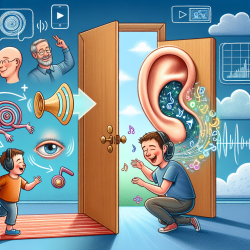Understanding the Importance of Auditory Training for Cochlear Implant Recipients
In the realm of cochlear implantation, auditory training has emerged as a promising avenue for improving speech recognition and quality of life among adult recipients. Despite the significant advancements in cochlear implant technology, many recipients still face challenges in achieving optimal speech recognition. This is where auditory training steps in, offering a structured approach to enhance listening skills and adapt to the unique experience of hearing with a cochlear implant.
Key Findings from Recent Research
A recent systematic review and meta-analysis titled "Systematic Review of Auditory Training Outcomes in Adult Cochlear Implant Recipients and Meta-Analysis of Outcomes" provides valuable insights into the efficacy of auditory training. The study analyzed 23 different studies, highlighting the potential benefits of both patient-directed and clinician-directed auditory training interventions.
- Patient-directed training showed significant improvements in vowel-phoneme recognition and speech recognition in noise.
- Clinician-directed training demonstrated notable enhancements in sentence recognition in noisy environments.
These findings underscore the importance of incorporating auditory training into the rehabilitation process for cochlear implant recipients, emphasizing its role in bridging the gap between device implantation and optimal speech recognition outcomes.
Implementing Auditory Training in Practice
For practitioners, integrating auditory training into therapy sessions can be a game-changer. Here are some strategies to consider:
- Patient-Directed Exercises: Encourage patients to engage in at-home exercises such as listening to audiobooks, radio programs, or using computer-based auditory training (CBAT) software. These activities can be both passive and active, providing a comprehensive approach to auditory rehabilitation.
- Clinician-Directed Sessions: Incorporate structured auditory training sessions led by a speech-language pathologist. These sessions can focus on specific speech recognition tasks, offering personalized feedback and guidance to enhance learning.
- Mixed-Approach: Combine both patient-directed and clinician-directed methods to provide a balanced and effective training regimen, tailored to the individual needs of each recipient.
Encouraging Further Research and Practice
While the current evidence supports the efficacy of auditory training, there is a need for further research to standardize training protocols and assess long-term outcomes. Practitioners are encouraged to explore innovative training methods and share findings to contribute to the growing body of knowledge in this field.
To read the original research paper, please follow this link: Systematic Review of Auditory Training Outcomes in Adult Cochlear Implant Recipients and Meta-Analysis of Outcomes.










